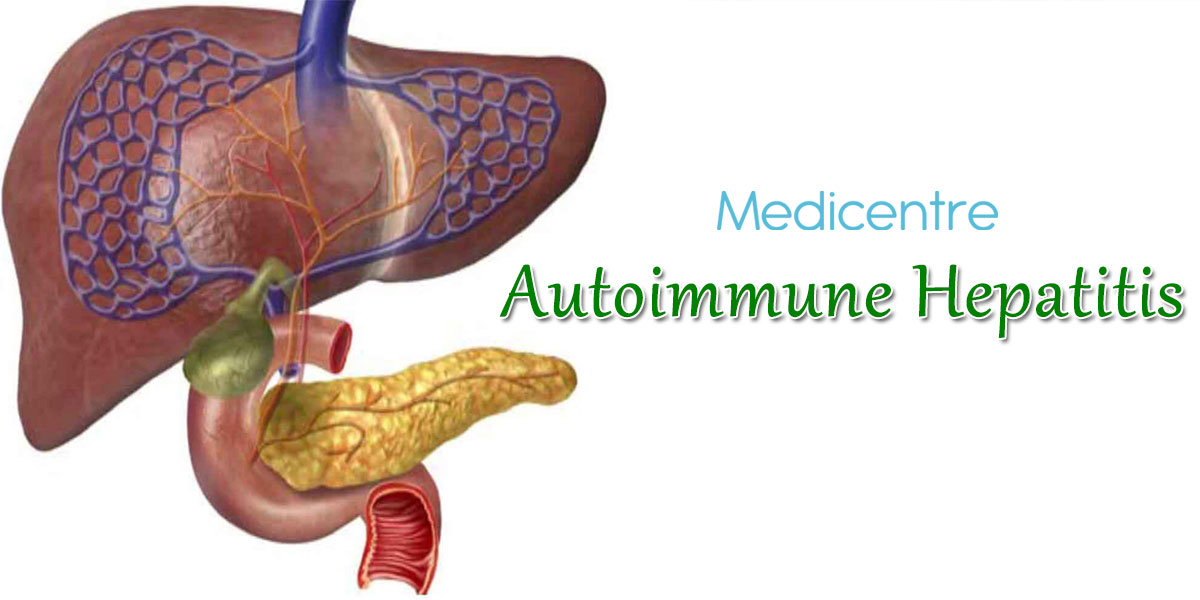Autoimmune Hepatitis
Autoimmune Hepatitis is the condition of liver where the liver inflames and it occurs when immune system invades the liver. However, the prime cause of Autoimmune Hepatitis is still not clear, but is observed that some drugs, toxins and diseases may trigger the Autoimmune Hepatitis in patients, especially women. If the condition is left untreated, it may cause liver cirrhosis and finally lead to liver failure. Autoimmune Hepatitis can be efficiently treated and controlled with medications that suppress the immune system. Liver transplant is the option which is prescribed when Autoimmune Hepatitis is not responding to the drugs and the liver condition is in advanced stage.

Symptoms of Autoimmune Hepatitis
The symptoms of Autoimmune Hepatitis usually range from mild to severe and it may occur suddenly or may occur over time. Some of the patients usually have the issue in the early stage while some may take time to recognize the symptoms. Some of the symptoms of Autoimmune Hepatitis include:
- Joint pain
- Abnormal discomfort
- Fatigue
- Yellowing of skin and whites in eyes
- Itching
- Abnormal blood vessels on skin
- Enlarged liver
- Loss of appetite
- Nausea and vomiting
- Dark coloured urine
- Loss of menstruation in women
Causes of Autoimmune Hepatitis!
When the immune system of your body targets and attacks the liver in place of bacteria, viruses and pathogens, you have Autoimmune Hepatitis. This attack on liver can cause further chronic inflammation and damaging of the liver cells. According to the studies, Autoimmune Hepatitis is caused due to the interaction between several risk factors like infections, genetic predisposition and medications.
Risk Factors of Autoimmune Hepatitis
The factors which increases the risk of developing Autoimmune Hepatitis include
- Being Women – Both Men and Women can develop Autoimmune Hepatitis, but women are more likely to have the condition
- Age – The Type 1 Autoimmune Hepatitis can occur in any age, while the Type 2 Autoimmune Hepatitis affects only the younger generation of girls
- After a viral or bacterial infection you are likely to develop Autoimmune Hepatitis
- Certain drugs like the antibiotic minocycline and cholesterol drugs are known to have links with Autoimmune Hepatitis
- People with Autoimmune Diseases are more likely to develop Autoimmune Hepatitis
Complications of Autoimmune Hepatitis
The Autoimmune Hepatitis condition which is left untreated can cause permanent scarring in the liver and the complications of the liver cirrhosis include:
- Maximized blood flow in portal veins – The blood from intestine, pancreas and spleen enter liver via portal veins and when it is blocked through liver then it backs up and increase pressure within portal vein and causes portal hypertension.
- Enlarged veins in esophagus – If there is a blockage in the circulation in portal vein, the blood usually backs up to other blood vessels and mainly in stomach and esophagus. Since the vessels are thin walls which are likely to inflate and burst due to increased blood and this leads to bleeding. Increased bleeding in esophagus from blood vessels is life threatening
- Damaging of liver can also cause large amount of fluid accumulation in abdomen and hence ascites can be uncomfortable and may sometime interfere with breathing and this is the signs of advanced liver scarring
- Liver failure and liver cancer may also be caused
Diagnosis of Autoimmune Hepatitis
There are certain tests which are performed in order to diagnose Autoimmune Hepatitis and this includes:
- Blood Test where samples are collected for antibodies testing and this helps doctors to distinguish Autoimmune Hepatitis from viral hepatitis and other disorders with same symptoms.
- Liver biopsy is another test which is performed to confirm the diagnosis and recognize the severity and type of liver damage you are having. In the process liver tissue is removed and it is sent for further testing in lab.